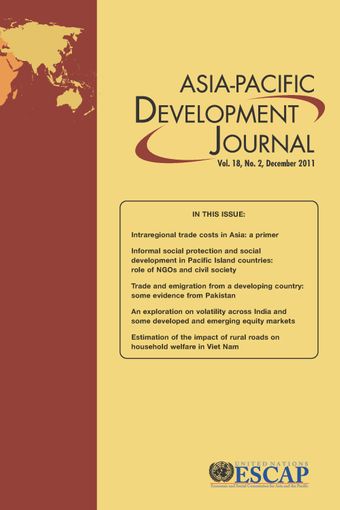-
Trade and emigration from a developing country: some evidence from Pakistan
- Source: Asia-Pacific Development Journal, Volume 18, Issue 2, Apr 2012, p. 57 - 78
-
- 09 Apr 2012
Abstract
Emigrants possess knowledge regarding the cultures and social environments of host and sending countries that can help strengthen the economic relationship between these countries. We find this to be true for Pakistan and its selected Organization for Economic Co-operation and Development (OECD) trading partners on whom data are available. During the period 1990-2003, Pakistan had a positive trade balance, on average, with English speaking countries, and a negative balance with non-English speaking countries of the OECD. Gravity model estimates, obtained in this study, suggest that the annual increase in the number of Pakistani emigrants in OECD countries accounted for a quarter of the annual growth in Pakistani net exports to the English speaking countries over the period of this study. Pakistan’s trade deficit with non-English speaking countries would have been at least 46 per cent higher had there been no increase in its expatriate population in those countries which appears to be engaged in import substitution activities. This study provides important input pertaining to the debate on the economic effects of emigration from developing countries.
© United Nations





